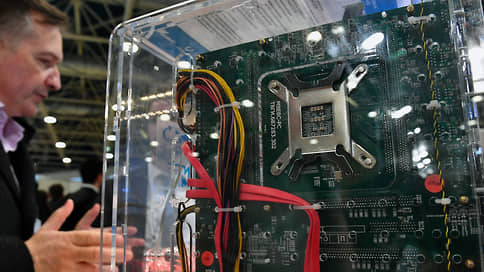Advisor to the deputy head of Rostec is looking for money for the new Elbrus-B processor
[ad_1]

As Kommersant found out, advisor to the deputy head of Rostec, Evgeny Babayan, son of the founder of MCST (produces Elbrus processors) Boris Babayan, wants to develop and produce a new Elbrus-B processor in the Russian Federation. Sources close to MCST claim that the design center has nothing to do with the project. Investments in Elbrus-B are estimated at 30 billion rubles. for three years. A number of electronics manufacturers note the potential of the project, but many consider it unrealistic.
Kommersant got acquainted with the agenda of the partner conference, which took place on September 12 at the Rostec State Corporation. The meeting was attended by developers and manufacturers of computer equipment and electronics. It follows from the agenda that the event was organized to find investors for technology projects. The list, in particular, mentions the “new parallel computing system “Elbrus-B””, the speakers are Advisor to the Deputy General Director of Rostec and General Director of the ANO “Digital Country” Evgeny Babayan and Corresponding Member of the Russian Academy of Sciences Boris Babayan.
According to a Kommersant source familiar with the details of the meeting, the Elbrus-B project involves the development of a high-performance processor, the production of which “is potentially possible at Russian factories that do not have advanced technologies.”
We are talking about “thick” topological standards, 60 nm and more: “Evgeny Babayan is looking for investors to organize a design center for the design and production of a pilot batch.” According to Kommersant’s interlocutor, the cost of the project is estimated at 30 billion rubles. for three years. Rostec confirmed to Kommersant that “Evgeniy Borisovich’s team is consulting with the State Corporation regarding the prospects of the project.”
We are talking about creating a new processor capable of solving a large number of unrelated computing tasks simultaneously – several times more than devices on traditional architecture, says a Kommersant source familiar with the project: “The idea itself may not be bad , but for now this is just an idea that has been discussed for a long time and without visible progress. There’s not much to invest in.”
Kommersant’s interlocutor in one of Rostec’s structures clarifies that this is Mr. Babayan’s personal project, not associated with MCST, which develops processors of the Elbrus line.
Boris Babayan is a Soviet and Russian engineer and scientist. From 1956 to 1996 he worked at ITMiVT im. Lebedev, where he led the development of the general software for the Elbrus-1 and Elbrus-2 supercomputers, which formed the basis of the Soviet missile defense system. In 1992, Mr. Babayan and Alexander Kim founded the Moscow Center for SPARC Technologies LLP (MCST), where some of the ITM&VT employees moved, then the LLP was transformed into JSC MCST.
In 2004, Mr. Babayan and a number of MCST employees moved to Intel. According to TAdviser, there Boris Babayan eventually took the post of director of architecture for the Software and Solutions Group division. In an interview for the book “Pages of the History of Domestic IT” (published in 2018), he said that “at Intel, Russian work is highly valued.” Evgeniy, the son of Boris Babayan, judging by open data, is engaged in the implementation of projects related to the digitalization of the public sector, for example, “Digital Valley of Crimea.”
Managing partner of Fplus (electronics distributor and manufacturer) Alexey Melnikov told Kommersant that he is “aware of the new project” and looks at it positively: “We must develop microelectronics, so projects that will help make the transition to Russian chips do not just make sense , but will also receive support.”
Large Russian microelectronics design centers Baikal Electronics and MCST declined to comment; the Module center did not respond. Kommersant’s sources in the microelectronics market look at Messrs. Babayanov’s project with skepticism: neither the goal nor the real possibility of implementation is clear to them, especially considering the fact that “there are no free specialists in the field of microelectronics left on the market who could theoretically be involved in the development.” .
“30 billion rubles. for three years – a team of approximately 100 experienced microprocessor developers. Where will they get them? – emphasizes a top manager at a semiconductor manufacturer.
“The reality is that now there are only three architectures in the world – ARM, x86 and RISC-V, hundreds of billions of dollars have been invested in them, and trillions in software,” says Yaroslav, founder of the Elvis Scientific and Technical Center (develops the Skif series processors). Petričković.—Devices running on these architectures are part of the global digital infrastructure. No one will come up with anything new.”
[ad_2]
Source link





